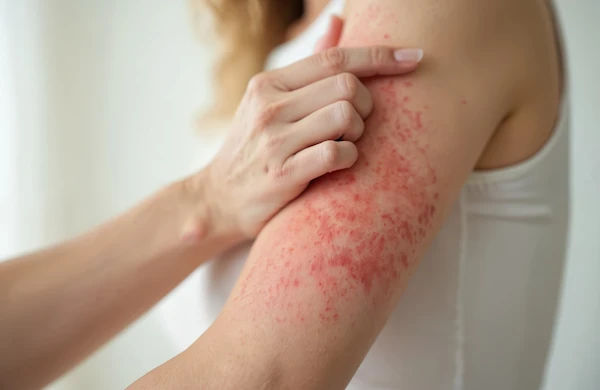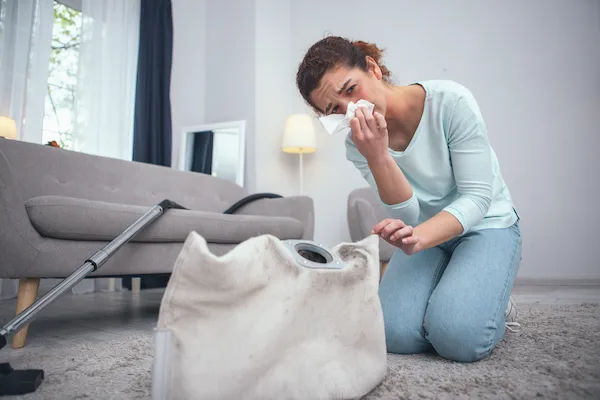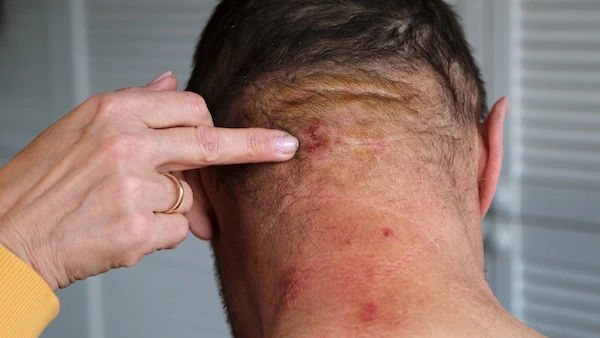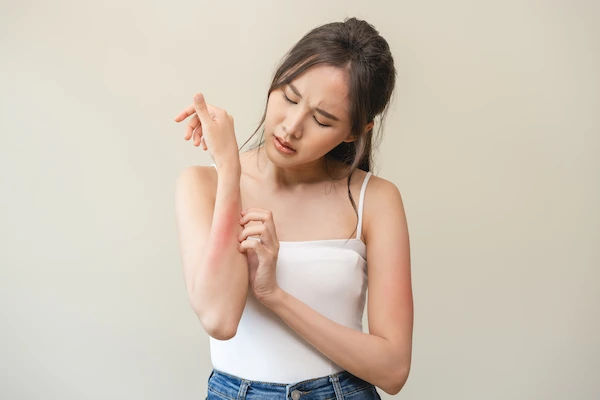Understanding Your Allergies and Symptoms
know about allergies, common allergy symptoms, causes, how they are diagnosed, treated and how they are managed or prevented more.


Understanding Your Allergies and Symptoms
Introduction
Allergies are a common health issue that affects millions of people worldwide. If you’ve ever sneezed uncontrollably around pollen, broken out in hives after eating certain foods, or felt your throat tighten after a bee sting, you may have experienced an allergic reaction.
Understanding allergies, what causes them, how they affect your body, and how to manage them can help you live a healthier, more comfortable life. Let’s break it down in simple terms.
What Are Allergies?
An allergy is your immune system’s overreaction to a harmless substance (called an allergen) that it mistakenly identifies as a threat.
Common allergens include:
- Pollen (from trees, grass, or weeds)
- Dust mites (tiny bugs in household dust)
- Pet dander (skin flakes from cats, dogs, etc.)
- Mould spores (found in damp areas)
- Certain foods (nuts, eggs, milk, shellfish, etc.)
- Insect stings (bees, wasps)
- Medications (penicillin, aspirin, etc.)
When your body encounters an allergen, it releases chemicals like histamine, leading to allergy symptoms.
Common Allergy Symptoms
Allergy symptoms vary depending on the type of allergy and how severe your reaction is. Here’s what to look out for:
1. Seasonal Allergies (Hay Fever or Allergic Rhinitis)
Seasonal allergens include:
- Sneezing
- Runny or stuffy nose
- Itchy, watery eyes
- Scratchy throat
- Coughing
2. Food Allergies
Food allergens include:
- Tingling or swelling in the mouth
- Hives (itchy red bumps on the skin)
- Stomach pain, nausea, or vomiting
- Diarrhea
- Severe cases: Anaphylaxis (life-threatening reaction causing trouble breathing, dizziness, or loss of consciousness)
3. Skin Allergies (Eczema, Contact Dermatitis)
Skin allergens include:
- Red, itchy rash
- Swelling
- Dry, flaky skin
4. Insect Sting Allergies
Insect allergies include:
- Swelling at the sting site
- Itching or hives all over the body
- Severe cases: Difficulty breathing, rapid pulse
5. Drug Allergies
Drug allergens include:
- Skin rash
- Fever
- Swelling of the face
- Severe cases: Anaphylaxis
If you experience severe symptoms like trouble breathing, swelling of the face/throat, or dizziness, seek emergency medical help immediately.
Consult a Top general practitioner for the best advice
What Causes Allergies?
Allergies can develop due to a mix of genetics and environmental factors. If your parents have allergies, you’re more likely to develop them too. Exposure to allergens (like pollen or pet dander) can trigger reactions at any age.
Some theories suggest that overly clean environments (hygiene hypothesis) may make children more prone to allergies because their immune systems don’t get enough exposure to germs early in life.
How Are Allergies Diagnosed?
If you suspect you have allergies, a doctor can help confirm them through:
- Skin Prick Test – Tiny amounts of allergens are placed on your skin to see if a reaction occurs.
- Blood Test (IgE Test) – Measures allergy-related antibodies in your blood.
- Elimination Diet (for food allergies) – Removing suspected foods and reintroducing them to check for reactions.
Managing and Treating Allergies
While allergies can’t always be cured, they can be managed effectively with the right approach.
1. Avoid Triggers
The triggers include:
- Pollen allergies: Keep windows closed, and shower after being outdoors.
- Dust mites: Use allergen-proof mattress covers, and wash bedding weekly in hot water.
- Pet allergies: Keep pets out of the bedroom, and bathe them regularly.
- Food allergies: Read labels carefully, and inform restaurants about your allergies.
2. Medications
The medications include:
- Antihistamines (e.g., cetirizine, loratadine) – Block histamine to relieve sneezing, itching.
- Decongestants (e.g., pseudoephedrine) – Reduce nasal congestion.
- Nasal sprays (steroid or saline) – Ease inflammation.
- Epinephrine auto-injector (EpiPen) – For severe allergic reactions (anaphylaxis).
3. Allergy Shots (Immunotherapy)
Long-term treatment where small doses of allergens to desensitise your immune system.
4. Natural Remedies
- Saline nasal rinses – Help clear pollen or dust from nasal passages.
- Honey (local raw honey) – Some believe it helps with pollen allergies (though not scientifically proven).
- Probiotics – May support immune health and reduce allergy symptoms.
- When to See a Doctor
Consult a doctor if:
- Your symptoms interfere with daily life.
- Over-the-counter meds don’t help.
- You experience severe reactions (anaphylaxis).
- You suspect a food or drug allergy.
Final Thoughts
Living with allergies doesn’t have to be a constant struggle. By identifying your triggers, taking preventive steps, and using the right treatments, you can keep symptoms under control.
Consult a Top general practitioner for the best advice
Consult a Top general practitioner for the best advice

Dr. Syed Ismail Ali
General Practitioner
7 Years • MBBS
Hyderabad
Apollo 24|7 Clinic, Hyderabad

Dr. M L Ezhilarasan
General Practitioner
6 Years • MBBS
Visakhapatnam
Apollo 24|7 Clinic - Andhra Pradesh, Visakhapatnam

Dr. Mohammed Kamran
General Practitioner
5 Years • MBBS, FIDM
Nashik
Apollo 24|7 Clinic - Maharashtra, Nashik

Dr. Madhuri Sai Sreepada
General Practitioner
9 Years • MBBS
Hyderabad
BRIGHT SMILES MEDICARE & DENTAL CARE, Hyderabad
Dr. Karanam Kondalamma
General Practitioner
4 Years • MBBS
Hyderabad
KK Clinic, Hyderabad




